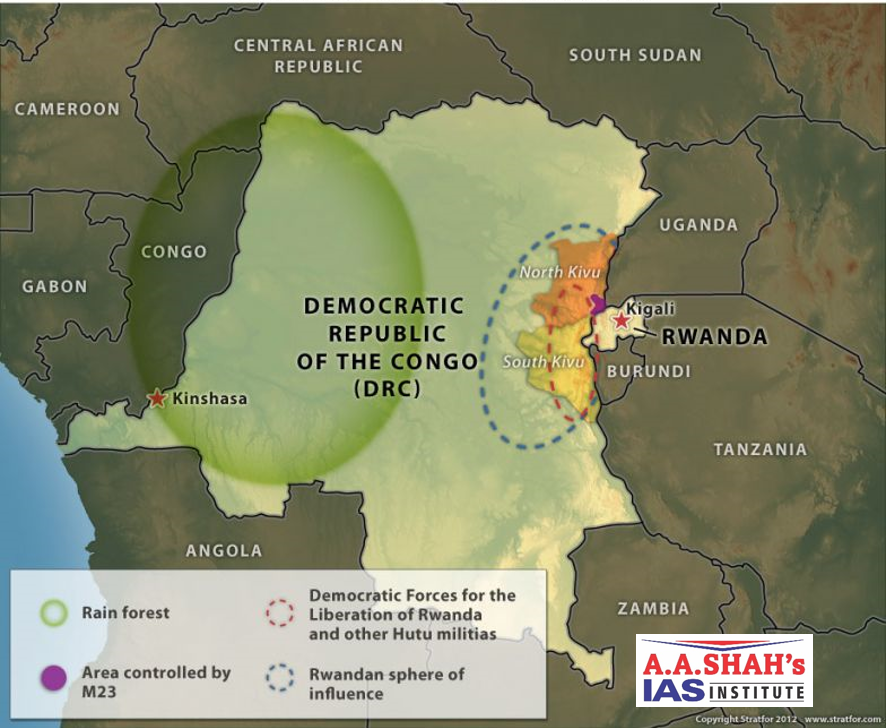Congo-Rwanda draft deal enlists U.S. and others to revamp minerals sector
INTERNATIONAL – AFRICA
15 SEPTEMBER 2025
- Rwanda and the Democratic Republic of Congo (DRC) agreed on a draft economic framework as part of a June Washington-brokered peace deal.
- The framework aims to end fighting, attract Western investment, and reform mineral supply chains in a region rich in tantalum, gold, cobalt, copper, and lithium.
- The draft is being discussed with private sector actors, multilateral banks, and donor agencies.
- A final framework is expected by early October 2025, to be signed later by heads of state.
Framework Provisions
- Regulatory reforms & de-risking: Work with the U.S. and international partners to create regulatory initiatives to reduce illicit trade and boost transparency.
- Transparency mechanisms: Commitment to OECD guidance and other third-party standards.
- Inspections: Third-party inspections of mine sites.
- Economic zones: Develop cross-border special economic zones with private sector partners.
- Coordination: Annual high-level summit on regional integration. Steering committee and technical working group meetings.
- Cooperation areas: Energy, infrastructure, mineral supply chains, national parks, and public health (from earlier outline).
Causes of conflict
- Ethnic and historical tensions
- There has long been tension between ethnic Tutsis (including people of Rwandan origin) and other groups in eastern DR Congo (North Kivu, South Kivu).
- Post-1994 Rwandan Genocide: Many Hutu militias and civilians fled into what is now Eastern DRC. Some of these groups are accused by Rwanda of continuing anti-Rwanda violence. Rwanda has cited the presence of Hutu militia groups (e.g. FDLR: Democratic Forces for the Liberation of Rwanda) in DRC as a security threat.
- Rebel groups and control of territory
- A major player is M23 (March 23 Movement), composed largely of Tutsi fighters. M23 had previously been active around 2012-2013 and then again from ~2021.
- The DRC government accuses Rwanda of providing support to M23 (troops, weapons, logistics). Rwanda officially denies these charges but many independent reports including by the UN suggest this support is real
- Natural resources
- Eastern DRC is rich in minerals (coltan, gold, etc.). Control of territory means control of mining, smuggling routes, etc. This makes the conflict not only about identity but also about economic gain.
- State weakness and multiplicity of armed groups
- There are many non-state armed groups in eastern DRC, not just M23. This makes the security situation fragmented and complicated.
- DRC state capacity in these provinces is limited; issues of corruption, infrastructure, governance deficits worsen the situation.
June 2024 deal proposed:
- Rwanda to withdraw troops from eastern Congo within 90 days.
- Congo to conclude operations against the FDLR armed group in the same period.
Key obstacles:
- Rwanda has not withdrawn troops.
- Congo’s operations against the FDLR not launched.
- Separate Doha peace talks with M23 rebels stalled.
- M23 rebels captured key eastern Congo cities and mining zones earlier this year.
